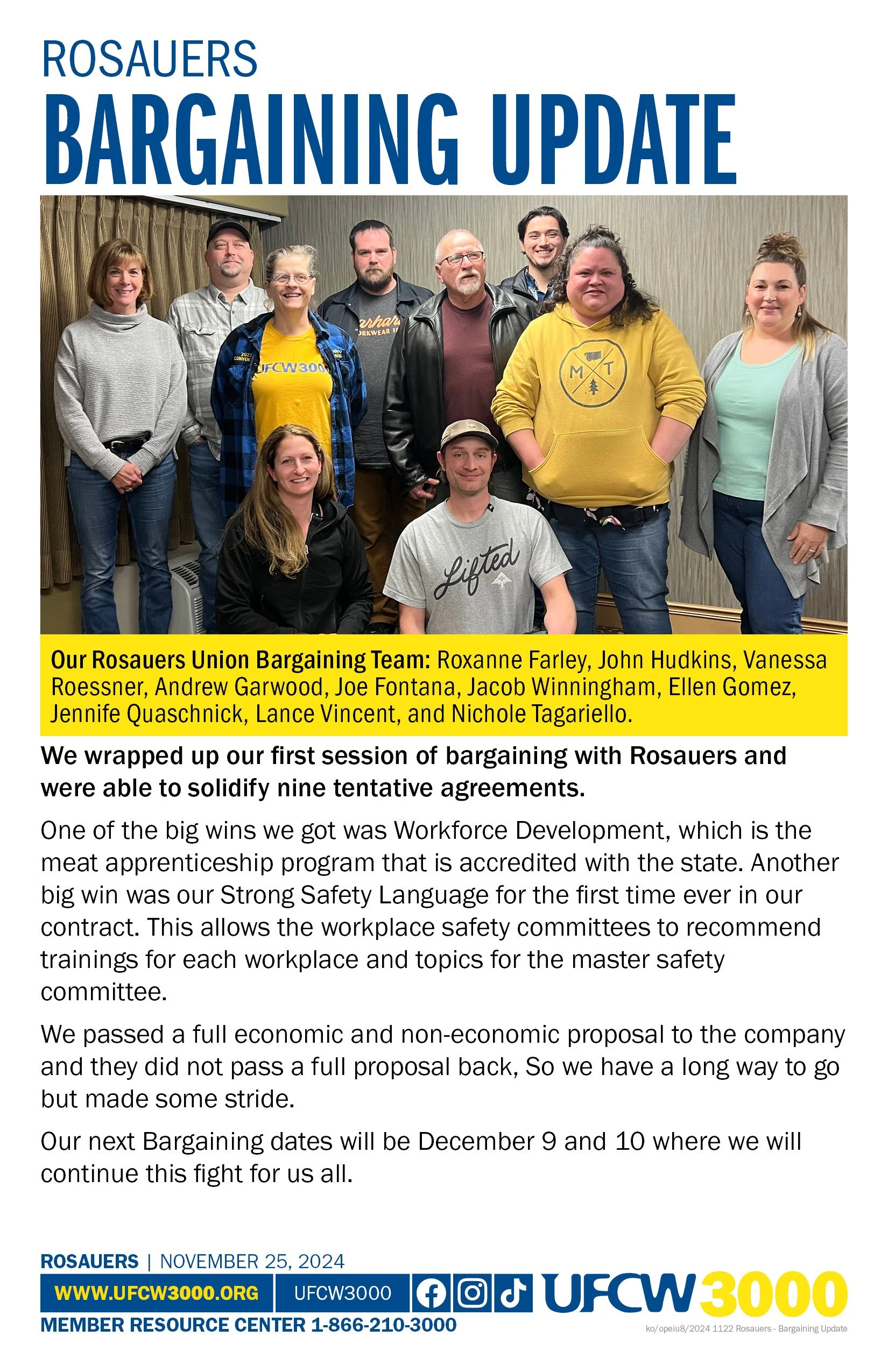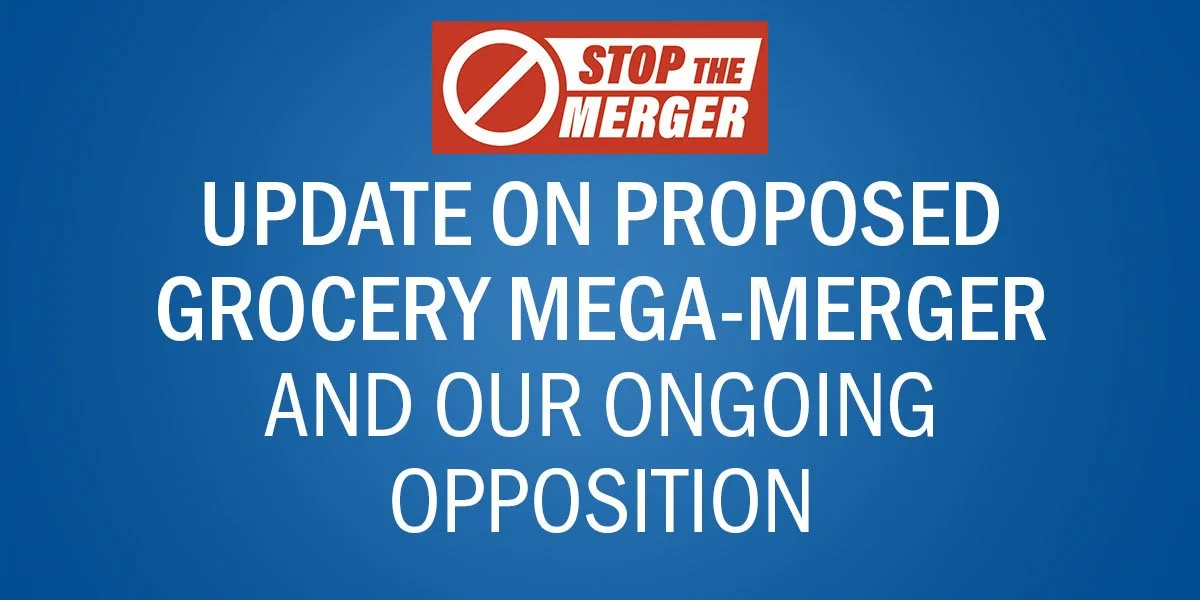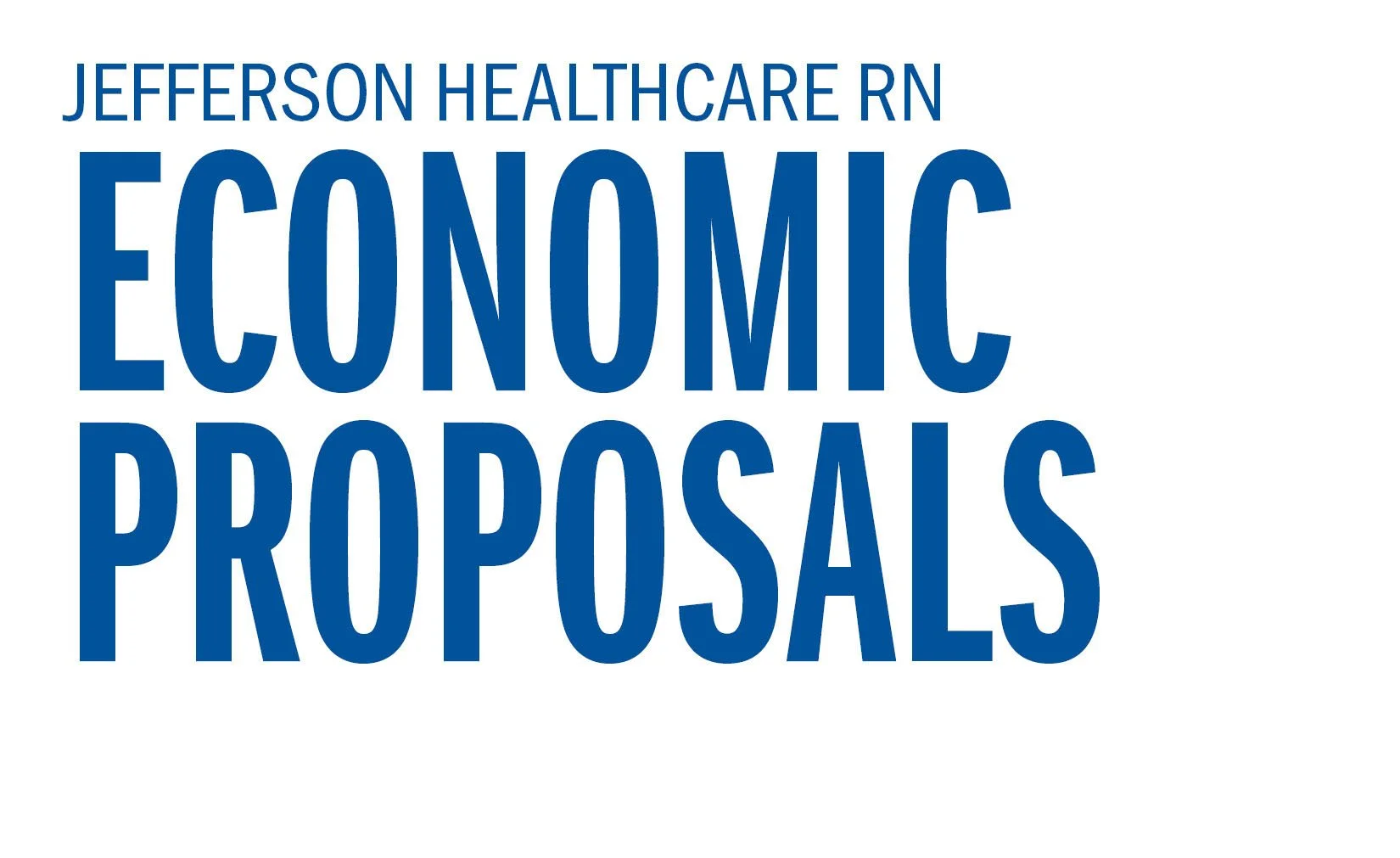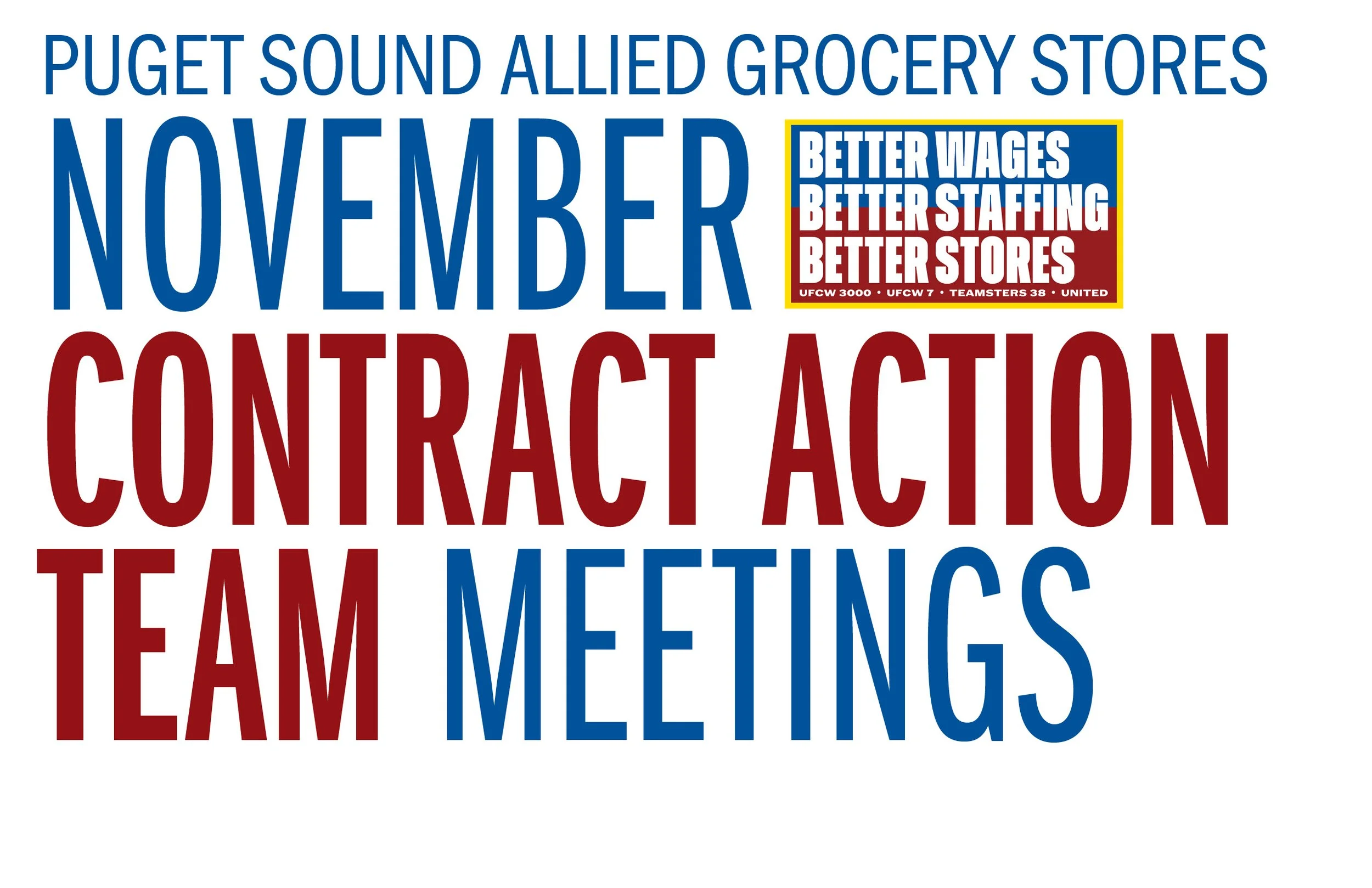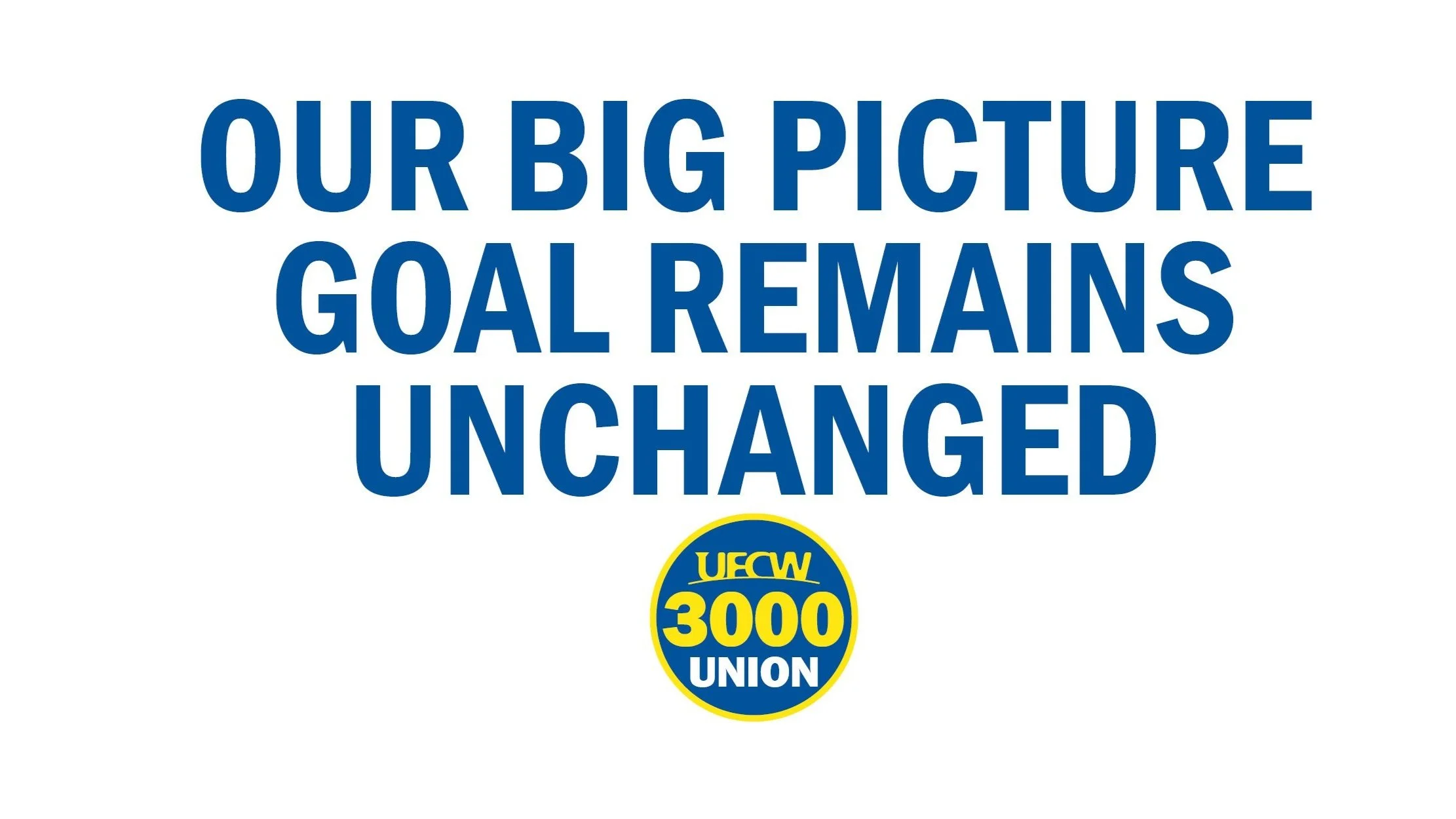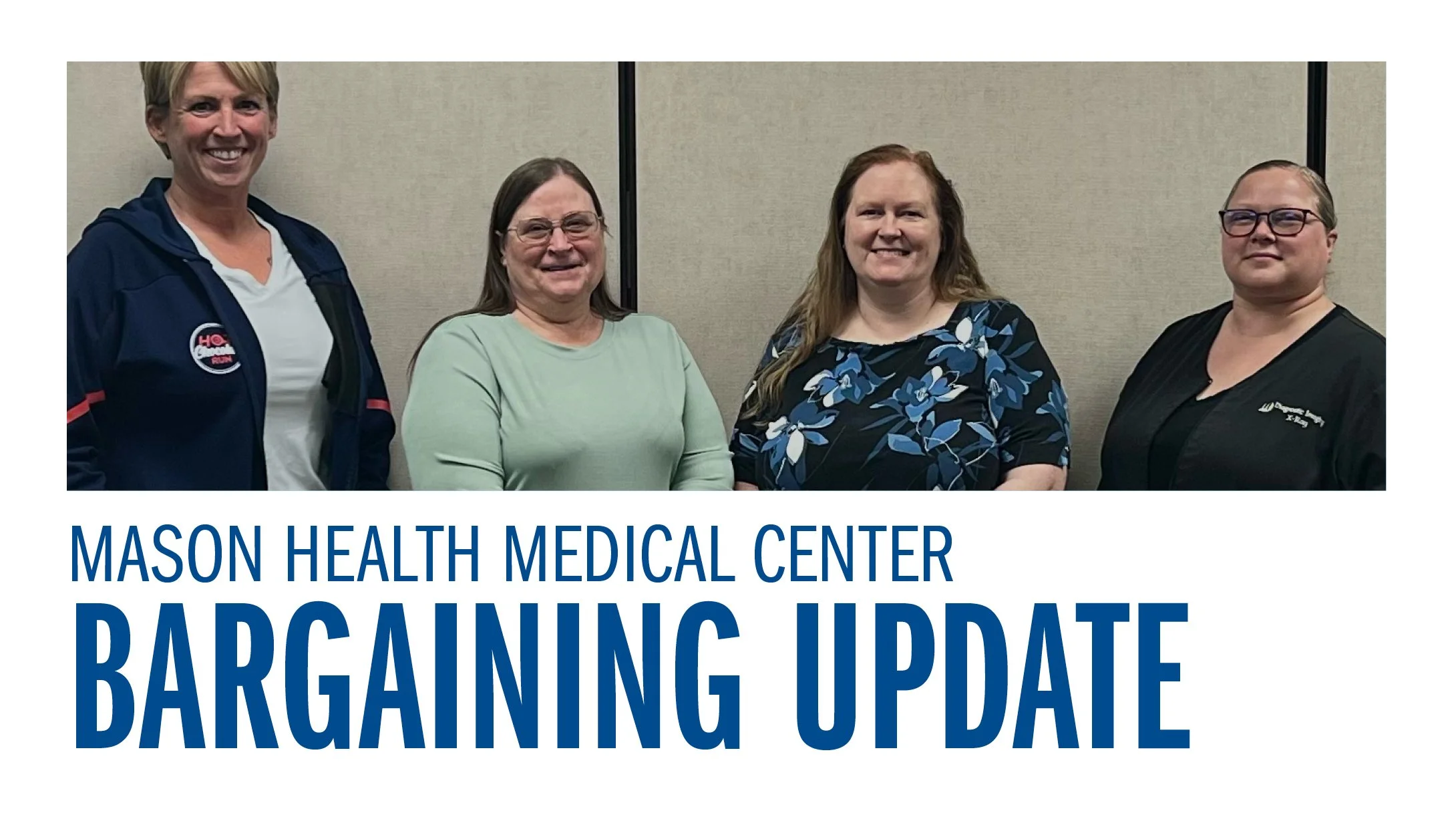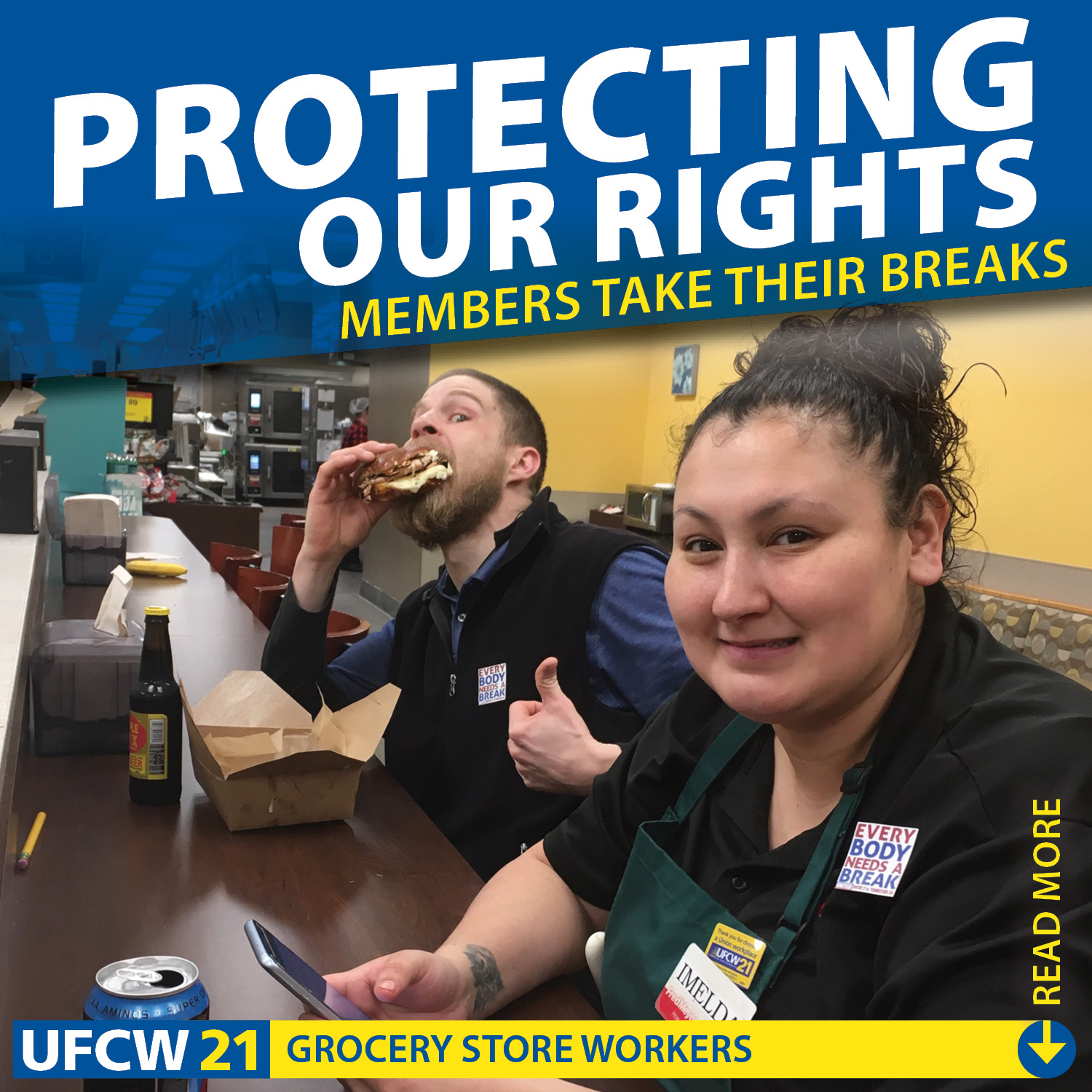RESOURCES FOR WORKERS DURING THE COVID-19 OUTBREAK
/Updating Regularly
En Español
UFCW 21 is building a powerful union that fights for economic, political and social justice in our workplaces and in our communities. We offer this list of resources gathered from social agencies, community, and allies to assist our members, future members, families, and communities during the COVID-19 outbreak. Our intent is to include as much information as possible to serve working people and most impacted communities, so feel free to share this within your networks. If you experience difficulty with accessing these resources, have additional helpful resources to add to this list, or suggestions on how we could better share this information, please contact us. To receive important updates from the union, be sure your contact information is up to date.
UFCW 21 UNION RESOURCES:
UFCW 21 main office phone line: 1-800-732-1188
Rep of the Day: 206-436-6578
If you believe your employer is not following proper safety guidelines or you would like to report safety concerns, send your name, workplace, contact information, and a description of your concerns to: safetyreport@ufcw21.org
INFORMATION ABOUT CORONAVIRUS / COVID-19
Washington State Department of Health
Washington State coronavirus hotline: 1-800-525-0127 (phone lines staffed from 6am to 10pm, seven days a week)
Centers for Disease Control website for Health Care Workers
County Public Health Departments/Districts updates and guidelines:
King County (information available in 16 languages)
King County Public Health hotline: 206-477-3977 (phone lines staffed 8am to 7pm)
Coronavirus information by and for the disability community
World Health Organization’s “Myth-Busters” page
HEALTH CARE / HEALTH INSURANCE
If you don’t currently have insurance:
A Special Enrollment Period has been extended due to the COVID pandemic, which means you can purchase insurance on our state health exchange anytime before August 15, 2021. The American Rescue Plan may also help you receive additional tax credits that could significantly decrease your monthly premiums. To enroll in health insurance through Washington Healthplanfinder:
Contact an Exchange-certified Broker, Navigator, enrollment center or the Customer Support Center at 1-855-923-4633; TTY: 855-627-9604, anytime 7:30 a.m. - 5:30 p.m. Monday-Friday to initiate coverage during this special enrollment period. Language assistance and disability accommodations are provided at no cost. For more information on getting free help from local experts, click here.
In addition, current state health plan customers whose income has changed due to a reduction in work hours during the COVID-19 state of emergency, or anyone who has lost employment altogether, should report income changes. You may be eligible for Washington Apple Health or increased subsidy assistance to pay for your premiums. More information is available here.
Apple Health (Medicaid): In Washington State, Medicaid is called Apple Health. Apple Health provides preventative care, like cancer screenings, treatment for diabetes and high blood pressure, and many other health care services. Apply or get more info here.
Online/Telemedicine options from the Union Sound Health and Wellness Trust:
PPO Members:
Nurse line: (877) 362-9969 and select option 1 (available 24/7)
If you are going to be hospitalized or have a serious health condition, request help from a nurse with the Guardian Nurses program, call: (877) 362-9969 and select option 2
Kaiser Permanente Members:
Kaiser Permanente Consulting Nurse helpline: (800) 297-6877 (available 24/7)
COVID-19 Updates and Resources from the Sound Health and Wellness Trust
HOUSING RESOURCES
Eviction and Rent Increase Moratorium
Governor Inslee has halted all evictions in residential or commercial properties in Washington State until at least June 30, 2021, unless a landlord, property owner, or property manager attests that an eviction is a response to a significant and immediate risk to the health, safety, or property of others created by the resident or the property owner is going to begin living in the unit or selling the property. This means landlords, property owners, and property managers in our state are not allowed to evict or threaten to evict tenants who can’t pay rent. They are not allowed to issue any kind of notice that would require a tenant to vacate a housing situation, including: eviction notice, notice to pay or vacate, notice of unlawful detainer, notice of termination of rental, or notice to comply or vacate.
They also cannot charge (or threaten to charge) late fees for nonpayment or late payment of rent. They cannot send tenants to collections over unpaid rent unless they can show a court that they offered the tenant a reasonable repayment plan based on the individual circumstances of that tenant. And they can’t charge rent for housing that’s not accessible or able to be used right now because of COVID-19.
If you have received a notice to pay or vacate, a court summons, a 20-day notice, or anything related to a potential eviction: You or an advocate can report a potential eviction to the state Attorney General’s office through the form on their website, by email at civilrights@atg.wa.gov, or contact them via phone at (833) 660-4877 and leave a general message by selecting Option 1.
Other housing resource information:
The Tenants Union of Washington has more information on tenants’ rights, including a tenant hotline. Find phone numbers and hotline hours here.
REDUCED HOURS / TEMPORARY SHUTDOWNS / QUARANTINE / UNEMPLOYMENT
Washington State’s Employment Securities Department has a website for workers who are affected by the coronavirus outlining what state benefits are available to you if you are:
Quarantined
Ill or being tested
Affected by reduced hours, temporary shutdowns, or layoffs
Facing loss of employment
and other scenarios related to coronavirus/COVID-19. We have been working closely with our state to ensure members have access to as many benefits as possible.
Unemployment Law Project can give free legal advice about unemployment benefits. Free interpretation is available for all languages.
Their phone numbers: 1-888-441-9178 | (206) 441-9178 | (509) 624-9178
In other languages: Hablamos español | 我们说你的语言 | мы говорим по русски | Waxaan ku hadli Soomaal | Makipag-usap namin tagalog
DISCRIMINATION
Our allies at Asian Pacific American Labor Alliance (APALA) have helpful information about how to fight discrimination against Asian American and Pacific Islander working people during this coronavirus outbreak.
King County Public Health has an outline of public resources for people facing discrimination during this outbreak and for talking to others about why stigma and discrimination are harmful.
National Center for Transgender Equality’s guide for trans people around COVID-19 (includes links to LGBTQ-friendly medical providers databases)
IMMIGRATION
Many community members may have questions about how their immigration status could impact their ability to access medical care. The Northwest Immigrant Rights Project has information in English and Spanish.
Tenga o no documentos legales, usted tiene el derecho de recibir atención médica. El recibir atención médica en el estado de Washington no le afectará en el momento que pueda arreglar su situación migratoria.
Para más información legal, vea este video de parte del Proyecto para los Derechos del Inmigrante del Noroeste.
Si desea más información sobre la “Carga Publica,” vea esta liga.
DACA Scholarship Fund: Thanks to the Seattle Office of Immigrant and Refugee Affairs, Facebook App & El Centro de la Raza, $75,000 will be available to cover DACA renewal fees. Scholarship funds are available to individuals who have or previously had DACA status, have a completed DACA renewal application, and who reside in Seattle, or work in Seattle, or go to school in Seattle. Successful DACA scholarship grantees will receive a check made out to the Department of Homeland Security to submit with their DACA renewal application. All application processes will require the completion of an eligibility form and a 30-minute video or phone appointment with an El Centro staff member.
Fondo de Becas Para DACA: Gracias a la Oficina de Asuntos de Inmigrantes y Refugiados de Seattle, Facebook y El Centro de la Raza, $75,000 estarán disponibles para cubrir las tarifas de renovación de DACA.
Our community allies are offering resources to those in need:
OneAmerica resources:
WSCADV resources:
https://wscadv.org/news/response-to-coronovirus-resource-round-up
CHILDCARE
Public Health guidelines for gatherings of children and youth while schools are closed
Washington State’s database of licensed childcare providers (call 1-800-446-1114 for help from a child care specialist if you’re not sure what you’re looking for)
Childcare assistance for members of federally recognized tribes
KING COUNTY:
Emergency childcare support may be available at no cost if you work in health care, a pharmacy, or a grocery store in King County. When accessing these resources, ask for a union childcare provider if available.
If you are in the city of Seattle, fill out this form to request childcare
If you are in King County but outside the city of Seattle, you should call Child Care Resources at 1-800-446-1114 and let them know where you work and that you need childcare.
FOOD SUPPORT
Statewide:
EASTERN WASHINGTON:
Seattle:
SPOKANE:
UTILITIES
If you are worried about paying utility bills, contact your local utility and see if you are eligible for a deferred payment plan if your financial stability has been jeopardized by COVID-19.
Puget Sound Energy will not have customers accrue late fees during this time and will not be disconnecting customers. at this time. They have options such as payment plans and new billing dates.
Seattle:
If you are experiencing financial hardship because of COVID-19, call Seattle City Light and Seattle Public Utilities at 206-684-3000 to set up a deferred payment plan. They will help keep your utility service going uninterrupted. Translation services are available over the phone.
The City of Seattle has pledged to keep all customers’ utilities on for the duration of the COVID-19 Civil Emergency period.
Seattle also has a Utility Discount Program offers income-eligible customers a 60% discount on their Seattle City Light bill and a 50% discount on their Seattle Public Utilities bill.
FINANCIAL RESOURCES
Disaster Cash Assistance Program: Our state’s Department of Social and Health Services (DSHS) has activated the “Disaster Cash Assistance Program” starting April 27, 2020. If you are not eligible for other cash benefits, you can apply for help with DSHS. Applying requires a phone interview. Call 877-501-2233 to apply, or apply online at WashingtonConnection.org and then call the same number to complete your interview. They can determine your eligibility for all available programs through one interview.
NOTE: DSHS warns that many people are calling and you may have to wait—they recommend calling before 11am.
Financial assistance is available through the Washington State Labor Council’s Foundation for Working Families.
Washington State has compiled a list of financial resources for people in our state.
Emergency Assistance Program through our state’s Economic Services Administration can offer emergency food assistance, cash assistance, and medical assistance. More info here.
MENTAL HEALTH
A guide to “Taking Care of Your Mental Health in the Face of Uncertainty” from the American Foundation for Suicide Prevention.
If you or a family member needs emotional or mental health support, or treatment resources for substance use, please consider calling the Washington Recovery Help Line at 1–866–789–1511.
Resources for people in crisis:
Suicide Lifeline: 800-273-8255; 800-799-4889 (TTY)
Teen Link: 866-833-6546
Crisis Text Line: text "HEAL" to 741741
National Suicide Prevention Lifeline (includes Spanish-speaking support): 888-628-9454
Veterans Crisis Line: 800-273-8255, Press 1
LGBT Youth Suicide Hotline: 866-488-7386
www.imhurting.org/ ImHurting Crisis Chat is a service offered through Volunteers of America Western Washington in the North Puget Sound and Salish regions.
List of Alcoholics Anonymous online meetings
Substance Abuse and Mental Health Service Administration’s National Helpline: 1-800-662-HELP (4357) SAMHSA’s National Helpline is a free, confidential, 24/7, 365-day-a-year treatment referral and information service (in English and Spanish) for individuals and families facing mental and/or substance use disorders.
DOMESTIC VIOLENCE, SEXUAL ASSAULT, & STALKING
We know that home is not a safe place for everybody, and that people are being quarantined or spending more time at home right now. Please reach out if you need support.
National Domestic Violence Hotline: 800-799-SAFE; or 800-787-3224 (TTY)
King/Snohomish/Pierce County Deaf Hotline: 206-812-1001 (videophone)
NW Network of Bi, Trans, Lesbian and Gay Survivors of Abuse: 206-568-7777
API Chaya (culturally competent safety services for API & South Asian people): 1-877-922-4292
ReWA (for immigrants and refugees): 206-721-0243
From our allies at the Washington State Coalition Against Domestic Violence, more resources:
RESOURCES FOR KIDS
CDC website on talking with children about Coronavirus Disease 2019
A printable comic book for kids about coronavirus from National Public Radio
Community crowdsourced list of education companies offering free services or subscriptions during school closures
How to talk to your kids about coronavirus resources from PBS
INTERNET ACCESS
You may qualify for free or low-cost internet through Comcast’s Internet Essentials program, which has been expanded during this virus crisis. The speed of this internet has been increased and new customers can receive two months of free internet service.
UNION JOBS NOW HIRING
UFCW Job site: Find grocery and health care jobs represented by UFCW at: UFCWjobs.com
Find other union job lists at the MLK Labor resources for workers page





